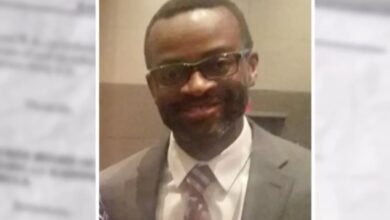Gay Marriage Repeal Considered in New Hampshire
By NORMA LOVE
CONCORD, N.H. – More than 1,500 married, New Hampshire gay couples could be placed into a classification all their own if lawmakers succeed next year in repealing the state’s two-year-old law legalizing same-sex unions.
Legislation to repeal gay marriage is one of the highly charged issues left over from the just-completed legislative session that must be acted on early next year. The two proposed repeal bills would not affect gay marriages before repeal, but would stop new same-sex marriages.
Other high-profile issues coming back include a constitutional amendment to shift control of state school aid from the courts to the Legislature. Lawmakers also must realign political districts in keeping with census changes. The Senate also held onto a bill aimed at blocking the proposed Northern Pass transmission project.
Republican state Rep. David Bates, sponsor of one of two gay marriage repeal bills, wonders if New Hampshire had not put off its vote and repealed its law, New York Republicans who voted to legalize same-sex unions this month would have instead voted against it.
“The effect of us turning back (our) law may have given the Republicans who abandoned their party position in New York pause,” Bates said one email he received indicated.
Bates is confident a repeal bill will reach Democratic Gov. John Lynch, but he isn’t sure supporters have the votes in the House to overturn Lynch’s promised veto. If that happens, he will consider bringing the repeal bill back in the future when a governor who supports it is in office, he said.
Neither bill would change the status of gay couples who are married. Bates said he also supports reinstating civil unions.
New Hampshire enacted civil unions in 2007 and two years later replaced it with the marriage law. Since the marriage law took effect in January 2010, 1,529 gay couples have wed or had their civil unions converted into marriages, according to the state division of vital statistics.
Mo Baxley, executive director of New Hampshire Freedom to Marry, believes lawmakers don’t have the votes to overturn a gubernatorial veto.
“We’ve had marriage equality for a couple years now. The sky didn’t fall. All those horrible things they said were going to happen didn’t happen. To undo and take it away this would create a mess. We could have some couples that are married, some couples that weren’t married,” she said.
If she’s wrong and the law is repealed, gay groups would sue immediately, she said.
“You can’t have two classes of citizens,” she said. “You can’t tell some gay and lesbian couples you are legally married and now some other gays and lesbian couples are forbidden from (becoming) legally married.”
Bates also has filed a proposed constitutional amendment to limit marriages to one man and one woman. He believes he has the three-fifths votes needed in each chamber to put it on the November 2012 ballot.
Andy Smith, director of the University of New Hampshire Survey Center, believes voters are more focused on the economy and jobs than on gay marriage. Survey center polls have found that the public has moved on.
“The big thing is that as time goes by other states pass this legislation and we see that there’s not been any significant changes in the way the world works, and in New Hampshire there’s not been significant issues or problems that have come up because of it that a lot of people’s fears about legalizing gay marriage just aren’t there. They haven’t been realized so people don’t worry about it,” he said.
Senate Republican Leader Jeb Bradley of Wolfeboro says it is too early to predict what the Senate will do on the issue, but it won’t be the chamber’s top priority.
“The top priority was jobs and the economy and I think going into 2012 it is going to be jobs and the economy,” he said.











Comments